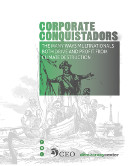Published on Thu, 2014-12-18 19:05
An unapologetic Dutch blogpost by the chair of the Dutch YPFDJ, Meseret Bahlbi, gives an indication of the urgent need for a sober and realistic benchmarking of a process of change in Eritrea, which is heralded in some quarters. The YPFDJ is the youth wing of Eritrea’s only allowed political party. It has an active membership that actively sends out the messages of the party. Unashamedly Bahlbi is expressing the position of Eritrea’s Minister of Foreign Affairs Osman Saleh who called for an urgent review of European migration policies towards Eritreans. According to Minister Saleh these are “to say the least, based on incorrect information”. Bahlbi makes similar claims, suggesting further that his views are vindicated by a recent Danish report. Offering contradictory arguments, this report by the Danish Migration Service suggests returning Eritrean migrants home because of current changes in Eritrea.Human Rights Watch has criticised the report as deeply flawed. Meanwhile the Danish Migration Service has publicly expressed doubts on the content of its report. |
Published on Thu, 2014-12-18 17:41
In 2011, Olivier de Schutter, then UN Special Rapporteur on the Right to Food cautioned, “The commodification of land, which the global phenomenon of land-grabbing is accelerating, entails risks that go far beyond what the current proposals for regulating it seem willing to recognize.” The risks he alluded to stem from treating land, labour and money as mere tradable commodities and allowing market mechanisms to be the sole arbiter of society, culture and nature. Adequately addressing them would require subordinating markets to the interests of society and the natural environment, recognizing non commoditized valuations of land and nature in ‘official’ governance discourse and practice, and putting in place national and international regulations that stop rather than encourage land grabbing. |
Published on Fri, 2014-12-12 21:51
Corporations should be carefully vetted for their fiscal responsibility and human rights record before being allowed to use the UN name and logo or join any partnership with the international organizations, argued Roberto Bissio, from the Social Watch secretariat during a panel on global economic governance on December 11 in New York. Former US congressman Barney Frank, co-author of the Frank-Dodd Act to regulate financial corporations, passed after the 2008 global crisis, was a panel member and agreed with many of the points raised by civil society organizations. The panel also included Chilean Ambassador Eduardo Gálvez, who defended a central role for the UN in global economic governance, an IMF executive director, and representatives of the US Treasury and of the UN Office on Drugs and Crime. |
Published on Fri, 2014-12-12 10:39
A new report released at COP20 by Corporate Europe Observatory, Democracy Center and Transnational Institute shows how corporations causing social and environmental destruction in the Andes and Amazon are driving climate change, whilst enjoying influential seats at the climate-negotiating table. The case studies included demonstrate how corporations from the global North operating in the extractives industry use well-honed practices of political manipulation while hiding their true nature through extravagant public relations campaigns which trumpet their disingenuous environmental credentials. The consequences of these corporations’ manipulation of decision-making processes include: the opening of new gas fields that destroy indigenous territories, the decimation of local water supplies and the forced displacement of whole communities. Yet in the midst of such exploitation the writers of the report have also witnessed brave acts of resistance by local communities. |
Published on Fri, 2014-12-12 09:10
China will remain as a developing country in the UNFCCC framework and will remain in the Like-minded Developing Countries group (LMDC) as well as the more general grouping of developing countries, according to the head of the Chinese delegation, Su Wei, taking part in the Conference of the Parties that opened in Lima on Monday. Su Wei made this confirmation in answer to a question during a side event on “Perspectives on the 2015 Paris deal: Options on the road from Lima to Paris” organised by the Third World Network and the South Centre at lunch time at the Conference Centre on the first day of the COP20. |
SUSCRIBE TO OUR NEWSLETTER







